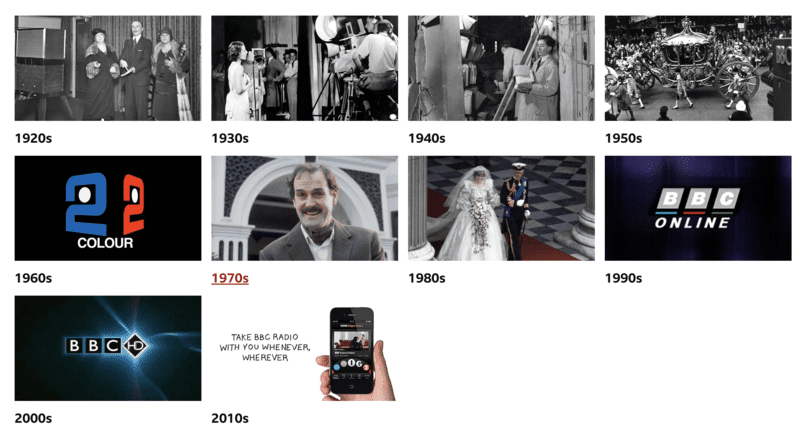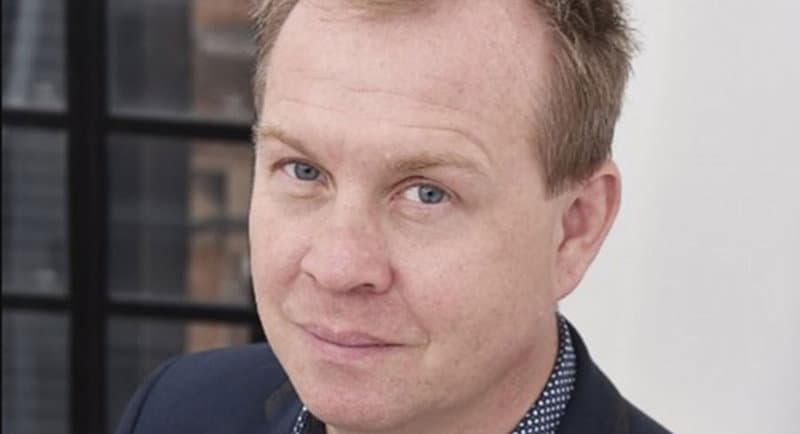The BBC was founded on October 18 1922, and daily broadcasts (radio) began on November 14 1922, meaning it will be celebrating its centenary this month.
BBC 100 will be celebrated with a week of on-air branding across BBC First, BBC Earth and UKTV from October 16.
Mediaweek caught up with the head of BBC 100, James Stirling, to talk about what this milestone means and what the public broadcaster has done to mark the occasion.
When asked about where he sees the BBC in 2022, Stirling said that it was more relevant than when it first started.
“That founding pillar of inform, educate, and entertain has never really changed. What has changed is our capacity to reach people. There’s a digital revolution that’s taken place over the last 15 years and we’ve been a driving force behind that.
“In the UK, we reach 90% of all adults every week which rises to 97% over a month. Globally our figures are just shy of 500 million users every week, in terms of audience. We have a global footprint, we are the most trusted news source there is globally, and we’re adapting our services. We’re always thinking of innovating and trying to reach consumers and audiences in the best possible way to suit their lifestyle and to recognise the digital changes going on.”
How has BBC celebrated 100 years
To celebrate the centenary, there will be a special BBC 100 video collection on demand offered on Foxtel for a week from October 14. The special offering will bring hundreds of hours of audience favourites from BBC First, UKTV, BBC Earth and CBeebies together in one place.
Titles include Time, Guilt and Baptiste, Shetland, Unforgotten, Silent Witness, Call the Midwife and Inside No 9 which will sit alongside documentaries from Louis Theroux, Simon Reeve’s insightful adventures, natural history shows, quiz coms Would I Lie To You and Qi, Absolutely Fabulous, The Graham Norton Show, much-loved children’s shows including Hey Duggee, and Charlie and Lola and Andy’s Adventures.
While this is marking the occasion in Australia, in the UK, Stirling said it has been a year-long celebration.
“We started the year with a very clear public service education moment. We did two things, we opened up our archive, to anyone who is studying a formal education in the UK. We made sure that people can access our archive for research purposes. Anything that we’ve ever made, that is digitised, they can have a look at for their studies.
“The second thing we did was to launch an initiative called Share Your Story. We will reach half a million schoolchildren around the UK, with a very simple toolkit, and hopefully an inspirational session from one of our key talents to really help them with the notion of their own storytelling. To encourage them to tell stories, and for us to then reflect those stories across our services.
“As the year went on we had the Queen’s Jubilee, Glastonbury, the Commonwealth Games, we started to really bring cultural moments to life for audiences. Between the 22nd and 28th of October, some of our big hitting programmes such as Top Gear, Strictly Come Dancing, and Dancing with the Stars will have special programmes that will reflect our centenary but where we can we will use new talent as well to celebrate where we’re going.”

The BBC’s online timelines
When asked what the BBC was trying to achieve when celebrating its 100th anniversary, Stirling said that while celebrating the future, they wanted to make sure they also reflected on the past in a contemporary way.
“The thing that we’ve tried to do with our BBC 100 celebrations is to reflect our history through contemporary talent. In many ways, BBC history is the history of the UK, and the world because we’ve reflected the major news stories and the cultural reference points throughout those 100 years. It’s nice to be able to frame that with a contemporary talent to tell stories from the past.”
Stirling also said that the BBC tried to remain focused on its audience first and foremost when putting together initiatives and content for the centenary.
“One important thing to try and get across in our centenary year is a focus on audiences, and making things for audiences. We’re definitely not interested in wheeling out the birthday cake and celebrating ourselves for the sake of it. We want to recognise the contribution that the UK makes to the globe in terms of culture, and we want to celebrate the great content that we can make for audiences. Inform, educate, entertain underpins everything, it is a returning theme and is a great mantra for us all to have.”
How the BBC has changed over the years
When asked about the legacy of the BBC, Stirling said that the public broadcaster is very proud of its history, and its history of innovation.
“We’re very proud that we’ve been an innovator. The BBC has been responsible for the first radio programme, the first news bulletin, the first scheduled television service in 1936, the first Olympics brought to the world in 1948, in London, and the first world-recognised digital video platform in the BBC iPlayer in 2007. We were a tech company when we started and we’ve morphed pretty quickly into a public service organisation. We’ve always had technology at our heart.”
When asked about how the BBC has changed, Stirling said that despite the number of years that have passed, the core pillars of the broadcaster remain the same.
“We’ve never changed in our mission for impartiality. That’s something that’s been at the core and the foundation of the BBC since our inception. It’s been a pivotal, and unique perspective that we bring to the media landscape. We’ve never changed our remit in how we think about politics. Our Director General (Tim Davie) puts it pretty well when he says you leave your politics at the door when you walk in as a staff member of the BBC. That’s why we’re trusted globally to deliver those impartial news stories.
“You think of the first 10 years of the BBC in 1926, there was a pretty serious general strike where the country was at a standstill, and there was pressure put on the BBC by the government and the Home Secretary to tow the party line and to tell the story in the government way. That Home Secretary was Winston Churchill and set the line in the sand that we would tell the story with impartiality. It’s a foundation of what we believe in that and that’s never changed, and we will continue to be something that underpins the BBC.”
What will the BBC look like in 200 years
When asked about what he thinks the BBC will look like in 200 years, Stirling said that he can’t predict how technology will impact the future but that many things about the BBC will remain the same.
“I think back to when John Reith started the BBC, can you imagine if they’d have dreamt that we’d be watching programmes on our phones, downloading podcasts and digital content? I’m sure there are technicians who are better placed to think about tech in 100 years. For me, the spirit of public service will always be there in the UK for the BBC. I like to think that we would still be trusted to bring the stories of the world to life.
“Globally we’re known for our news, but I think we are also known for our drama, comedy, children’s television, sport and the other beautiful things that we bring to life for audiences. I’d like to think that we’re still resonating in terms of culture and that we will search to nurture and celebrate new talent. That’s the crux of what we do, you think of the people that come through the BBC and that stretches right back to someone like David Attenborough in the 50s.”
